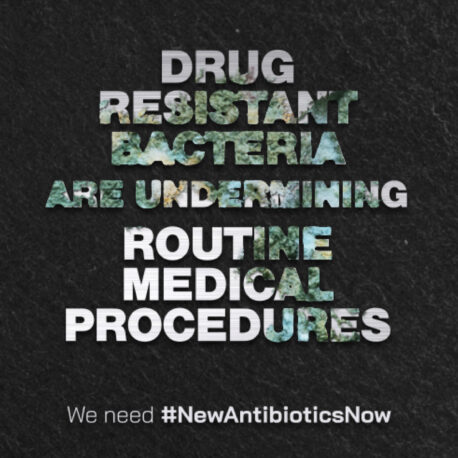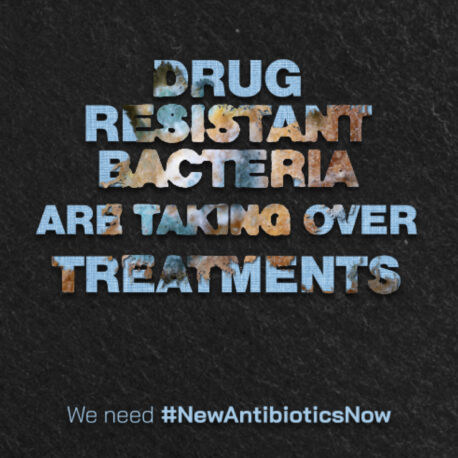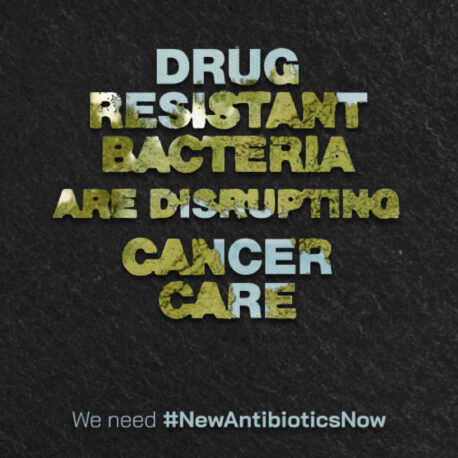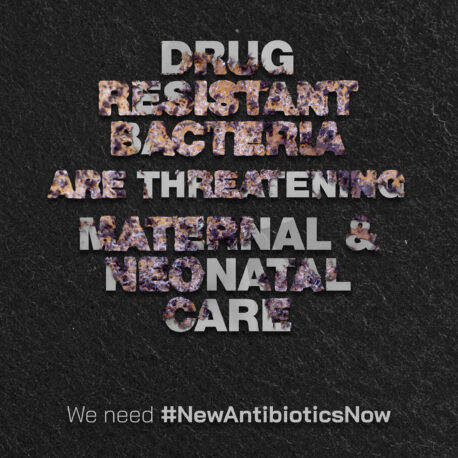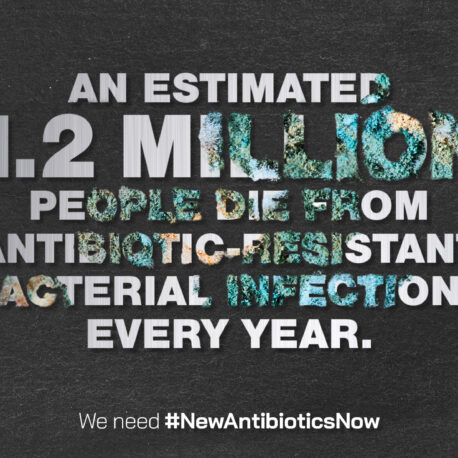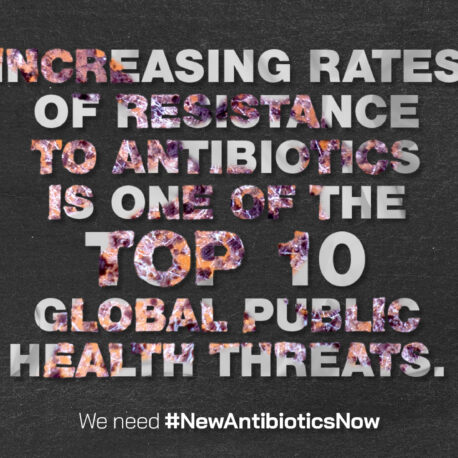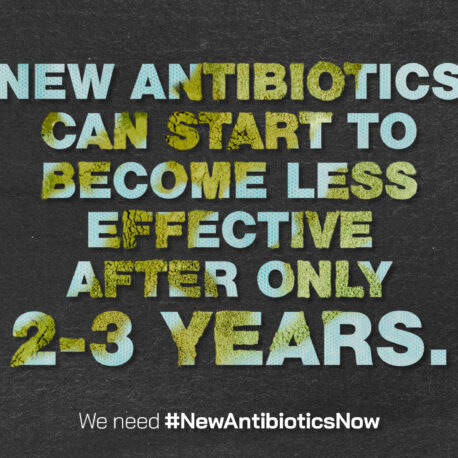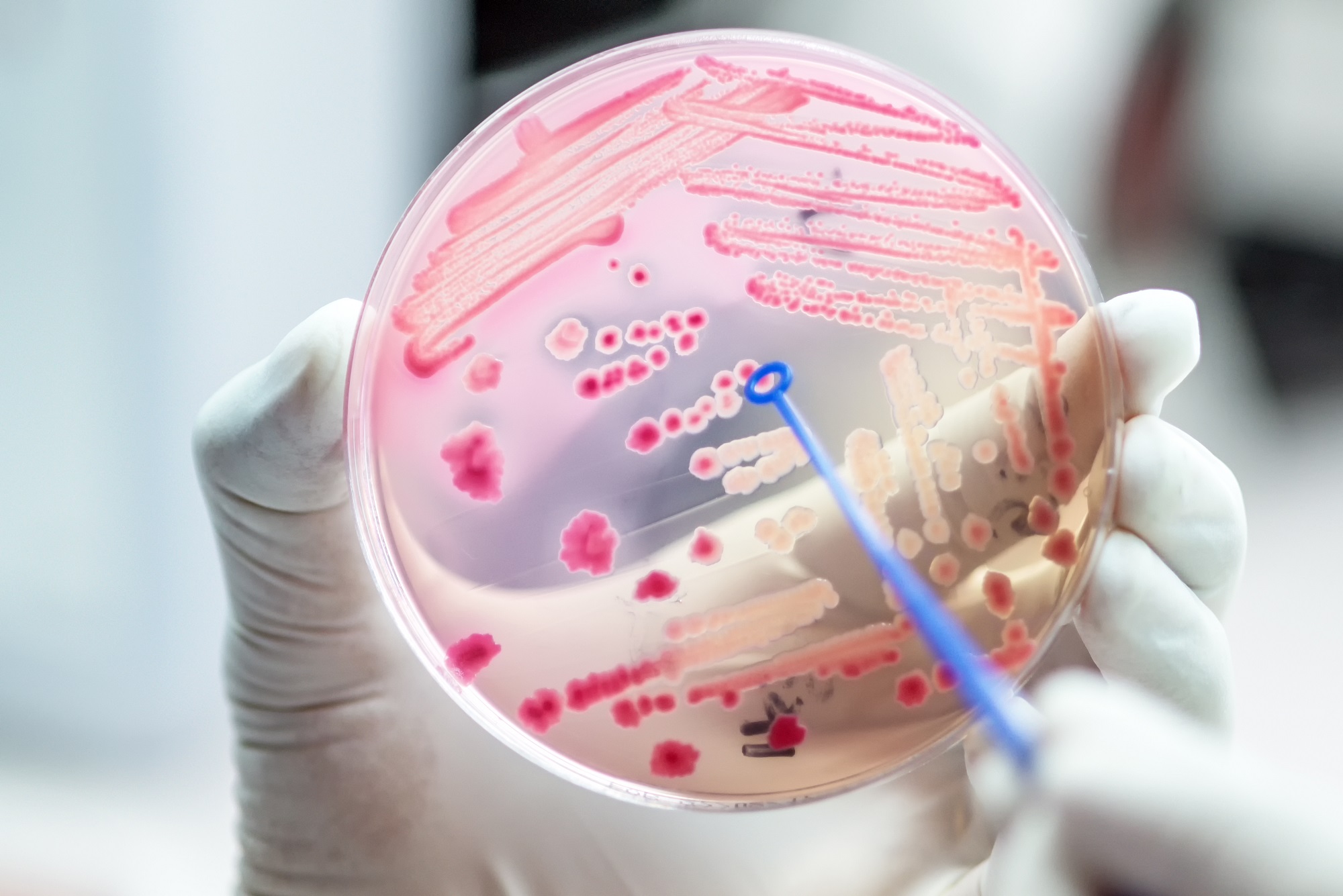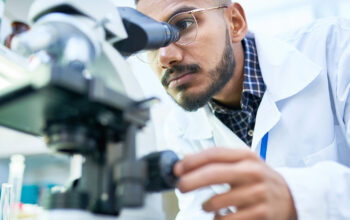#NewAntibioticsNow
#NewAntibioticsNow is a campaign that shows the slow and insidious manner in which drug resistant bacteria are undermining routine medical procedures, taking over treatments, disrupting cancer care, threatening maternal and neonatal care and slowing down medical recoveries. It calls for solutions that help sustain the development of new antibiotics, now.

Overview
The world is losing its most powerful tool in healthcare: antibiotics.
Antibiotics are the foundation of modern medicine. From simple surgeries and dental procedures to cancer treatment, antibiotics support health systems’ ability to deliver safe care to patients. By one estimate, antibiotics have extended average human life expectancy by more than 20 years since their discovery almost a century ago. But they are becoming less and less effective as a result of bacteria developing resistance, making people more vulnerable to infections.
According to the WHO, the rise in rates of antibiotic-resistant infections has become one of the top 10 biggest health issues facing the world.
This is a problem that will get progressively worse unless policy reforms are implemented.
We need #NewAntibioticsNow and we need to accelerate the creation of a vibrant and sustainable innovation ecosystem to support R&D for new antibiotics and other antimicrobials addressing pathogens prioritized by leading public health bodies.
global public health threats
deaths from AMR-related infections every year
lives lost annually by 2050 (est.)
What is antibiotic resistance?
AMR happens naturally when bacteria change and become resistant to antibiotics. However, the more we use or misuse antibiotics, the faster bacteria develop resistance and the less effective antibiotics become, making it harder and sometimes even impossible to treat infections caused by resistant bacteria. If effective antibiotics are not available, bacterial infections can get quite dangerous – even life-threatening – for patients.
More than 1.2 million die globally every year because they are infected with microbes – bacteria, viruses, fungi, or parasites – that have become resistant to most known drugs. Anyone, of any age, in any country can be infected. AMR is a global issue that impacts us all.
Left unchecked, AMR threatens to become one of the world’s biggest health problems, surpassing diabetes and cancer and undermining every aspect of modern medicine.
In some of the most alarming scenarios, it is estimated that, by 2050, AMR could claim as many as 10 million lives per year and have an accumulated cost of up to $100 trillion to the global economy.
Drug-resistant bacteria are...

...undermining routine medical procedures
Thanks to antibiotics, tooth extractions and hip replacements have become quite common, low-risk procedures. But with drug-resistant bacteria on the rise, even the most routine procedures can lead to deadly infection.
If more bacteria become drug-resistant, common infections could become untreatable, and routine treatments – chemotherapy, caesarean sections, hip replacements – too risky to carry out.
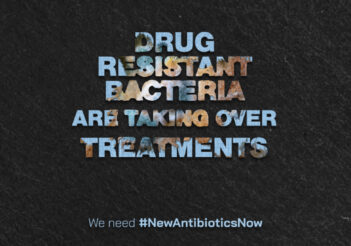
...taking over treatments
The rise of antibiotic-resistant bacteria is undermining treatment options for people living with conditions such as cystic fibrosis, cancer, HIV or with weakened immune systems.
People living with primary immunodeficiencies and those who have compromised immune systems are especially vulnerable to acquiring infections and therefore rely on the use of antibiotics to ward them off. However, due to antibiotic resistance, not only might these drugs become less effective in preventing infections, but there’s already evidence showing that the infections that do occur are more difficult to treat.
For instance, for people living with cystic fibrosis, chronic and severe bacterial infections in can lead to lung damage, eventually causing respiratory decline and potentially necessitating a lung transplant. Antibiotics play a crucial role in combating these infections, helping prevent or slow down the damage.

...disrupting cancer care
When people undergo cancer treatment, their immune systems are weakened. If we can no longer rely on effective antibiotics, the progress we’ve seen in cancer care in the past decades could be undone.
Significant strides have been made in cancer care over recent decades, showcasing remarkable advancements in surgical procedures, radiotherapy, and various medications, including the emergence of innovative immunotherapies. Yet, the looming menace of drug-resistant bacteria poses a substantial challenge, jeopardizing the progress achieved in cancer treatment.
According to the Union for International Cancer Control, UICC, people with cancer are more susceptible to infections due to the lowering of immune defences, while surgery and treatments like bone marrow transplants, radiotherapy and chemotherapy put the immune system under immense pressure.
As many as 1 in 5 cancer patients undergoing treatment are hospitalised due to infection, and antibiotics are the main line of defence. Pneumonia and sepsis (as a result of bacterial infection of the blood) are among the most frequent causes of admission to intensive care units for cancer patients. In fact, it is estimated that 8.5% of cancer deaths are due to severe sepsis.
Antibiotics are an essential component of cancer treatment, often necessary for many patients. To safeguard their benefits, it’s imperative to improve the use of antibiotics and address the AMR crisis.
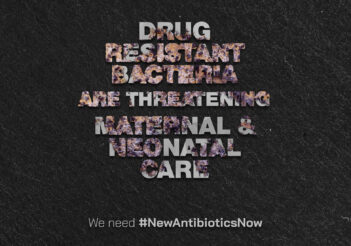
...threatening maternal and neonatal care
Mothers giving birth, those recovering from caesarean section complications, and newborns often rely on antibiotics for protection against deadly infection.
Neonatal sepsis, a severe infection occurring in newborns, presents a critical concern intertwined with antimicrobial resistance. The vulnerability of newborns to infections coupled with the escalating rates of antimicrobial resistance amplifies the challenges in effectively treating this condition.
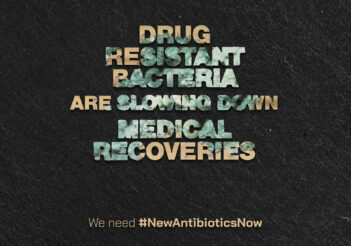
...slowing down medical recoveries
The rise of drug-resistant bacteria can lead to prolonged or recurring infections and delayed recovery from medical procedures. This can mean extended hospital stays, longer treatment times, or delays for patients getting back to their usual way of life.
Studies have demonstrated the financial consequences of AMR, including extremely high healthcare costs due to an increase in hospital admissions, longer hospital stays, more intensive care units and isolation beds, and prolonged treatment times.
For instance, according to the OECD, every year, antimicrobial resistance causes a significant impact on health, resulting in the loss of approximately 1.75 million disability-adjusted life years (DALYs) across several countries. In simpler terms, this means a measure of the healthy years of life lost due to illness or disability caused by AMR.
Difficult environment to develop antibiotics
Developing antibiotics is a long, complex, and risky process, and many in development fail along the way.
It takes 10–15 years to progress an antibiotic candidate from the preclinical to the clinical stages. For antibiotics in existing classes, on average, only one of every 15 drugs in preclinical development will reach patients. For new classes of antibiotics, only one in 30 candidates will reach patients.
When they do successfully make it through the rigorous R&D and approval processes, new antibiotics are used sparingly to preserve effectiveness and are often placed on shelves to be used only when more common classes of antibiotics do not work.
The result is a huge public health need for new antibiotics, but a lack of funding for antibiotic R&D, particularly the later stages of clinical research.
Because bacteria continually develop resistance to our existing antibiotics, we will always need a robust pipeline of new ones – so it is critical to have sustained investment to keep pace with growing resistance.
In 2020, more than 20 leading pharmaceutical companies stepped up and created the AMR Action Fund to invest nearly US$1 billion in antibiotic R&D and support the pipeline for the next few years. AMR Action Fund is now the world’s largest public-private partnership supporting the development of new antibiotics.
Join the #NewAntibioticsNow conversation online
There is an urgent need for policy reforms to create an environment that enables sustainable investment in antibiotic innovation, including properly valuing new antibiotics.
It is the only way to accelerate the creation of a sustainable innovation ecosystem to support R&D for new antibiotics and other antimicrobials addressing pathogens prioritized by leading public health bodies.



